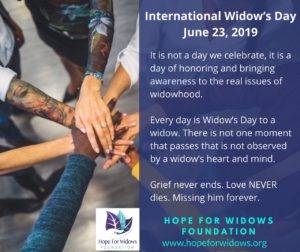
June 23rd is recognized as International Widow’s Day. It is not a day we celebrate, it is a day of honoring and bringing awareness to our widowed community. Every day is widow’s day to a widow. There is not one day that passes, that the day is not observed by a widow’s heart and mind.
This day significant to widows, but also the children who have lost. Hope for Widows Foundation is committed to change and bringing awareness to the real issues of widowhood. Issues affecting even the unaffected, indirectly. They include poverty, starvation, prostitution, hate crimes, rape, depression, targeting of widows, anxiety, suicide and more. Widowhood is a large contributor to these and many more social trajectories.
“In some cultures, the death of a husband has meant exile, vulnerability, and abuse. But bereaved women are beginning to fight back.” – as quoted by Cynthia Gorney, National Geographic
“When the United Nations in 2011 designated June 23 as International Widows’ Day, the official explanation was a somber one: that in many cultures widows are so vulnerable—to abusive traditions, to poverty, to the aftermath of the wars that killed their husbands—that widowhood itself must be regarded as a potential human rights calamity.” – National Geographic, Cynthia Gorney
Life moves forward for widows, but I can tell you “Life does not just go on” in the free way others may believe. You don’t just get over it. Loss changes a person forever, stays with a person forever.
At the heart of widowed woman is bravery, courage, strength, compassion, understanding and a want to be understood. Even as a tear trickles down and the hurt increases, they wear a warriors face, an openness in their eyes that they now understand life in a way that they hope many do not ever know and at times their understanding fleets them as the reality is just to encompassing, to understand. They wear a warrior’s smile – you will see this smile in the video composed.
****Materials and Video credited to former Board Member, Community Blogger and Hope Sister, Tanya Smith, President Addelise, Brand Development and Marketing
Hope for Widows Foundation was able to help with school fees for an entire year for three children with the $130 donated.
“Hope for Widows Foundation has made many connections to women within the United States and Internationally. Our heart is with every widow and every woman or man who has lost their loved one. On this day and every single day, we see all of you and are here!” – Hope for Widows Foundation
Our International Hope Sisters Spotlight
Kenya
Dianah Wanjiku Kamande from Come Together Widows and Orphans.
She was widowed in 2013. Today she is 35 and has accomplished much in her serving of widows and orphans.
A mother of two beautiful girls and such an example to them. She became a widow as a result of domestic violence when her husband of ten years came home and had planned to kill her and her daughters. when his attempts failed he turned the knife on himself.
Her injuries were life threatening. She had urgent head surgery and was fitted with 5 plastic nerves in her cranium. She also had hand surgery and was fitted with multiple metal plates because he had broken her left hand. She underwent breast surgery because he had pierced her right breast.
This is how selfless Dianah is – though it was a terribly tough time for her, it was at that time that she realized so many of her visitors in the hospital were widows and survivors of past cases of violence. As a survivor on her hospital bed she went through widow abuse. Her in-laws accused here of her husbands death. She was insulted and called a prostitute. While in the hospital her property and household items were taken. She quickly took action by enlisting her brother’s help. Turning to Google she began to check if the constitution of Kenya provided rights for her as a widow. She wondered if this was even clearly defined and what rights as a survivor of violence would be offered to her. Unfortunately there was nothing. This amazing woman sat on her hospital bed, requesting a notebook and a pen and she started drafting a widows bill.
After she was discharged she invited widows into her home, instead of them coming 15 as requested they came 25. Word spread fast. The second meeting hosted 66 widows. The third 337, the fourth over 750. Dianah rolled up her sleeves and started getting the exact number of widows in the country of Kenya. Widows are absent in statistics worldwide; the National Bureau of Statistics does not collect this data. Astounding right? She went further and contacted the morgues and started getting both private and public numbers of married men who passed every day and she reached out to these woman. She began gaining exposure in the media and soon the organization she registered on September 14, 2013 exponentially grew to 1.4 Million Widows by June 23, 2016, also known as International Widows Day.
Philippines
Philippine Hope Sister, Micah Juarbal
Micah is 29 years old and the mother of one daughter. At the age of 27 her journey of widowhood started. Her husband worked as a government employee in a nearby city. They were together but because of financial problems they decided that it would be best for her and her daughter to live with Micah’s parents temporarily. She continued herstudies for their daughters future.
Their wedding anniversary was April 14th. She expressed she would miss him so much to which he replied, “missing someone is normal, we need to sacrifice for our future”. The next day, her husband sent her and their daughter to be with her family. On April 16th her husband went back to work. He would call them everyday. On April 18 at about 11:13 p.m. someone called her and she thought it was him, but when the lady spoke, Micah was shocked to hear her husband was in an emergency room, he had been hit by a car while on his motorcycle. Micah immediately got on a bus. When she arrived to the ER, she saw her husband lying in bed and having a seizure because of the head trauma.
She wanted to break down, but she couldn’t. After five hours passed when he should have had an immediate head operation, (it took this time because she had to find money and seek help from his friends), they landed in a public hospital because the private hospital wanted a downpayment before they would do the operation. On April 21st at exactly 8:35 while holding her four year olds hand, his pulse rate dropped and that was when the doctor told them he was gone. The pain was excruciating. She wanted to go with him but needed to care for her daughter. She has continued her studies in college and is now in her third year. Her daughter in grade 2. Micah shares that she doesn’t like to be called a widow because for her and like so many others, she still is married to her husband. Where she lives, it is in a state of martial law because of ISIS existence. Everyday is horrible she explains. There are a lot of soldiers killed and she can’t imagine the wives waiting for their husbands to come home in a coffin. She is focused on her studies as a way to honor not only herself, but her husband as this was his dream for her.
Amess Nthala
Amess shared with Hope for Widows Foundation that she had been praying and fasting for God to direct her and her group to our foundation.
She is a widow advocate and has worked with her church coming up with ideas to offer support to widows. They are planning a fundraiser at the church so that widows can start their own businesses.
Amess was married in 2004 right after graduating from high school. She suffered abuse from her stepmother and married young to leave home. This unplanned marriage was God sent. The man she called her husband brought love and comfort to her life. She gave birth to her first-born son Trust, that same year. In 2007 she gave birth to a baby girl named Mildred. This was the year when her husband felt a calling to become a pastor. I encouraged him to apply and he did. He was asked to interview. There was a rule that when going to the ministry interviews you need to take your spouse. Amess accompanied her husband as a witness. After the interviews they were surprised that they took both of them to go and study theology. Amess had never thought of studying or teaching Theology in her life. It was very difficult for her to accept at that time, she didn’t know God’s plan or purpose for her life.
Even still, her husband encouraged her. One of the interviewers told her husband that he saw something so unique in Amess. She became pregnant and was allowed to continue her studies. That year she welcomed a baby boy and he was named Joshua! Her husband was earning a certificate in Theology while she was earning a Diploma in theology. In the second year of her course she did well and qualified to be enrolled for a degree program. Her husband was very happy for her. She started the degree program in September of 2010 and then in November her husband fell ill. He was diagnosed with liver cancer; the prognosis grim being told he only had three months left to live. On March 22nd he died. Amess was distraught and at a crossroads not knowing what to do. She felt like quitting, but chose perseverance and graduated with her Degree in Theology in 2012.
She put in the work and excelled. The school asked her to help them teach Greek and Hebrew but on a voluntary basis. This arrangement suited her because the school helped her through her education and she felt it only right, that she give back. She was faced however with raising three children to take care of, so it became a burden to her financially. At that same time she had a friend talk to her about an orphanage. They called her to help on the spiritual side and administration. She went to help in 2013 and would still go to the Theological college to teach up until 2015. Up to she is still working as a volunteer at the orphanage without a signed contract. They are not able to offer a salary, but give her an allowance. She continues to have a serving heart while trusting in Gods plan and provision for her and her family. Her experience is one of trust and hope. She continues to serve in the hopes that she will be able to use what she has learned, sharing it with others and earning money to be able to support her family.
National geographic recently issued an article in the February 2017 issue. In this article it highlights the brutality of woman being disowned, thrown away, made to leave the life they know, raped, forced into prostitution, forced to drink the blood of their husband and sleep with a family member to cleanse them. This excerpt cited from National Geographic’s article in the February issue.
India (this information shared by National Geographic)
“There is a place called “The City of Widows”. The widows wake very early as one large vat of tea is made. They must get in line to have a ration of that and rice if they are one of the lucky ones for the day. The numbers are not reported but it is said there may be 10,000 widowed woman in this city.
They crowd the temples singing devotional songs, which are chanted all day long by the impoverished widows. They do this to earn hot meals, maybe a nighttime sleeping mat.
They live in shelters too, and in shared rental rooms, and under roadside tarps when no indoor accommodation will admit them. Vrindavan is about 100 miles south of Delhi, but the widows come here from all over India, particularly the state of West Bengal, where allegiance to Krishna is intense. Sometimes they arrive accompanied by gurus they trust. Sometimes their relatives bring them, depositing the family widow in an ashram or on a street corner and driving away.
Even relatives who don’t literally drive a widow from the family home can make it plain every day that her role among them has ended, that a widow in India, is forever burdened by the misfortune of having outlived her husband, is “physically alive but socially dead,” in the words of Delhi psychologist Vasantha Patri, who has written about the plight of India’s widows” – Cynthia Gorney, National Geographic
Uganda
When a spouse dies the term used is widow inheritance. You would generally think this means what is left to the widow who has lost her spouse. It has much different meaning unfortunately. This means that the in-laws illegally seizing all her inherited property as their own. The in laws also take her as a sex partner or wife for the relative of their choosing.
International Widows Day Background
International Widows Day (IWD) is a global day of focus for effective action to raise awareness and help widows and their children around the world. In 2015, there were an estimated 259 million widows and 585 million children in the world affected by widowhood, together with their family members the number is well over a billion people. For more information on the Loomba Foundation visit http://theloombafoundation.org/international-widows-day/
The Loomba Foundation put together a report in 2015 that details the research they performed to gather information on the number of widows per country. I have used Esri’s ArcGIS for Office solution to create an interactive map on my A Widows World blog that allows you to visualize this data worldwide.
Although, this is not 2017 data, this is the most current information I was able to gather. I credit the Loomba organization for their research, adopting this day, and the care and support they offer to recognize widows worldwide.
I encourage widows out there to live, take chances and go after the things that matter. Don’t stay in your sorrow and grief, honor your loved one lost and yourself by living a life that would make them smile and be proud. We all deserve that.
Article approved to be Cited from National Geographic:
For Widows, Life After Loss, by Cynthia Gorney, Photographs by Amy Toensing
http://www.nationalgeographic.com/magazine/2017/02/global-images-of-widows-india-bosnia-uganda-discrimination-exile/
About Hope For Widows Foundation
Hope for Widows is a national support system for, and developed by, widowed women. We help connect new widows with other widows to offer peer-to-peer support and other resources. By pairing new widows with women who have been where they are now, we help make connections that begin the healing process. Through our peer support, resources, initiatives and conferences we support widows through the entire grieving process.


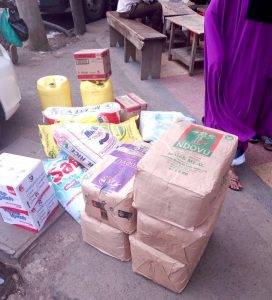
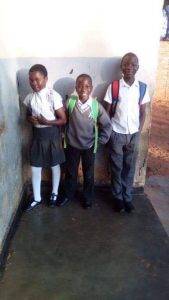
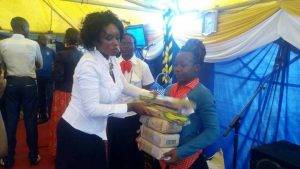
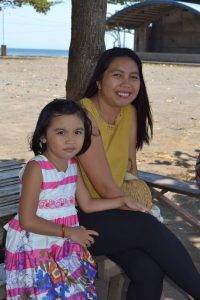
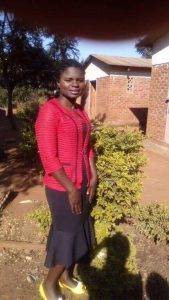
How do i sign up for ant type of help. For a widow!i need it bad!with everything!